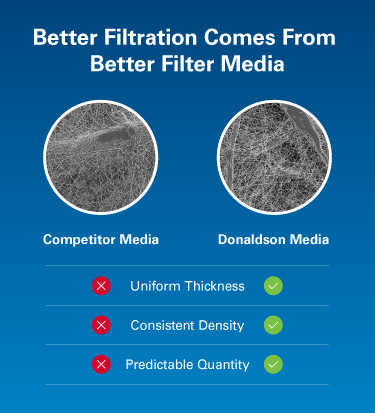

Lubricants are playing an increasingly important role as continued toughening of global legislation sets challenging targets that require components to retain key performance characteristics and properties over extended periods of time.
High-performance base fluids and additives developed by UK-based Croda Lubricants, for example, offer qualities such as reduced coefficient of friction, excellent anti-wear capability, zero or reduced sulfated ash, phosphorus and sulfur (zero or low SAPS), low volatility, superior thermal stability, increased oxidation stability, high viscosity indices, clean burn and low deposit formation.
Automotive Industries (AI) asked Chris Nottingham, vice president of Croda Lubricants to tell us more about the technology.
Nottingham: Croda is very proud of the fact that it is a world leader in specialty chemicals derived from natural and sustainable raw materials. As a supplier to a highly technical industry, we must develop and supply products which deliver real, tangible benefits to our customers and ultimately to the consumer. This is achieved through a combination of a deep understanding of the technical and regulatory needs that are placed upon the industry through the introduction of new specifications and environmental regulations, and through close collaboration with our customers, namely, the lubricating oil formulators.
An example of our current new product development activities includes the design of new, unique polymeric friction modifiers, Perfad 3000 and Perfad 3050. These two products can reduce the frictional characteristics of engines oils to levels previously unachievable with conventional organic friction modifiers, which results in significant improvements in fuel economy and reduced exhaust emissions. Croda’s new polymeric friction modifiers may also provide increased engine durability through reduced wear, an area that we are exploring further.
AI: Give us an idea of the kind of R&D being done.
Nottingham: Research and development is the key to future growth and prosperity. Croda is a global company with manufacturing, sales offices and research laboratory facilities across the globe, including the USA, Brazil, Japan, China, Singapore, India, France, Holland, Spain and the UK. Croda Lubricants is one of nine business units operated by Croda, and our research facilities are located in New Castle Delaware, Hull UK and at Cowick Hall, UK.
At these facilities we have synthesis labs for the development and preparation of new products, and applications laboratories in which we can evaluate the intrinsic properties of our products, across a wide range of industrial and automotive applications, including engine oils and transmission fluids (for example, wet clutch fluids for dual clutch transmissions).
AI: Tell us about Croda’s natural solutions for friction modification, viscosity and anti-corrosion.
Nottingham: More than 70% of the raw materials used in our products are renewable. Croda Lubricants has for many years been a leader in the development of products which are derived from renewable raw materials, but we also consider the impact that our products may have on the natural environment. Many of our products are therefore designed to be biodegradable and have low toxicity towards aquatic organisms. In addition to being a leading supplier of friction modifiers, Croda has a very broad range of esters (more than 100) which can be used as lubricant base fluids and lubricity additives, perhaps the broadest range of any supplier worldwide.
Each product is different, and is tuned for a particular application. For example, low viscosity esters can be used in the formulation of low viscosity engine oils. In the search for fuel efficiency, the OEMs are demanding lower viscosity engine oils, for example, 0W or 5W oils, to reduce energy loss through churning of the lubricating oil in the engine.
Conventional base oils, such as Group I and Group II mineral oils are not suitable for these new low viscosity engine oils. To achieve the desired viscometric and noack properties it is necessary for the formulators to use synthetic base fluids such as Gp III and Group IV base fluids, often in combination with synthetic esters. Esters are of interest to formulators due to their high viscosity index properties, their excellent low temperature flow properties and their outstanding Noack volatility properties.
AI: What is the significance of Croda getting the HX-1 registration for the Priolube 3970?
Nottingham: For many years, formulators of lubricants for use in the food preparation industry, for example, bakeries, have had to rely on mineral oil and PAOs as base fluids. Whilst these base fluids have their uses, they also have their limitations. For example, they do not possess the desired oxidation and thermal stability properties required for use in higher temperature chain lubrication.
Priolube 3970 is an important step forward in that it is an oxidatively and thermally stable ester and it has proven to be the first of a number of ester base fluids that are considered acceptable by the NSF as HX-1 ingredients. Since registering Priolube 3970 Croda has been successful in gaining H1-X approval from the NSF for Priolube 3966, Priolube 3999. Croda has also been successful in having one of its anti-corrosion additives approved as an HX-1 ingredient, namely Crodasinic O.
AI: What are some of the future natural solutions you expect to launch?
Nottingham: The main industry driver for the foreseeable future is improving fuel economy and reducing emissions for vehicles powered by internal combustion engines.
Croda will continue to work on friction modifiers and low viscosity base fluids for both engine oils and for transmission fluids. Whilst positive strides have been made in the industry in recent years, there is still a desire to reduce the amount of sulfated ash, phosphorus and sulfur (SAPs) that is used in engine oils. Croda will therefore continue to develop new SAPs-free products that can be used to reduce friction and to reduce wear in engines, and products that can be used to enhance the performance of conventional additives, such as ZDDP. In the area of transmission fluids, we will continue to develop friction modifiers and lubricant base fluids that can be used to control friction and friction durability, to ensure good fuel economy, equipment durability and driver comfort through-out the lifetime of the vehicle.
Later in 2011, we plan to launch some new products which can be used as seal swell agents. These products will be based on renewable and sustainable raw materials and will deliver similar or better seal swell performance than phthalate esters. For many years phthalates have been used in the lubricants industry, but their use is coming under ever-increasing scrutiny due to their poor toxicological and environmental profiles. Croda’s new products will be non-harmful to humans and aquatic organisms and will be substantially biodegradable.
We are also continuing to develop products for the industrial lubricants market sector. Biodegradability, low environmental and human toxicity, controlling friction and minimizing wear are all key desirables in applications such as wind turbine lubricants, metal rolling fluids, metal cutting and deformation fluids and hydraulic fluids. We will take the knowledge that we have gained from automotive applications and adapt our ideas and products to deliver solutions and competitive advantage to our industrial lubricant customers.
AI: How would you describe Croda Lubricants’ automotive identity and personality?
Nottingham: Ask an engine oil formulator what they want, and they’ll usually tell you lower friction and friction durability. Ask a transmission fluid formulator what they want and they’ll tell you controlled friction within defined limits and friction durability. At Croda we think about how we can assist our customers in controlling and managing the frictional and wear properties of their formulations.
AI: Tell us about your new tagline and identity “Leading the Way Naturally”.
Nottingham: “Leading the way naturally” is a reflection of both our corporate strategy and the strategy of Croda’s Lubricants business. Croda Lubricants is an innovator. We have a long track record of being an industry leader in many of our chosen markets, be they automotive applications or industrial applications. Whilst other companies may follow a strategy of imitation through the manufacture of me-too products, Croda will continue to develop new and ground breaking products and to work closely with our customers to find solutions to their problems. We are constantly looking to develop new technologies and solutions to meet the changing needs of the lubricants markets and we aim to do this by continuing to use renewable and sustainable resources, responsibly.














More Stories
Lakshmi Prasad Bhatta on the quest for zero road deaths
Cybord TCI – The Future of Manufacturing Integrity
NXP accelerates the development of software defined vehicles with new family of Ethernet switches